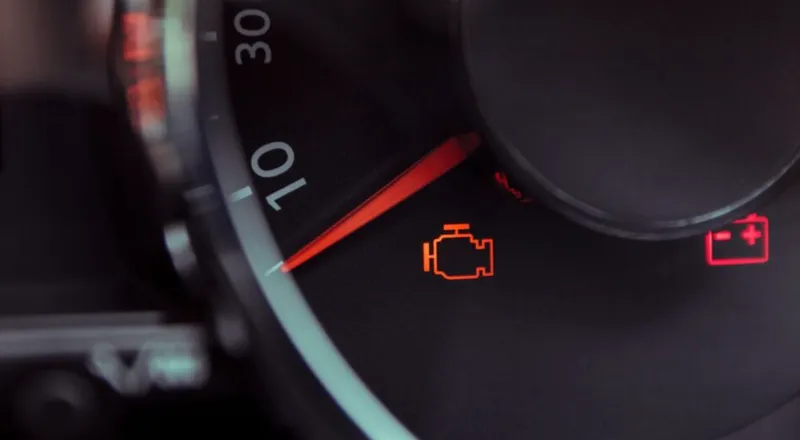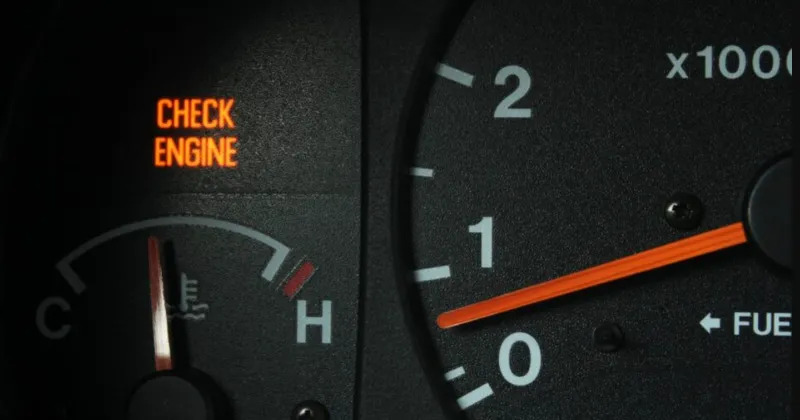The Top 7 Car Problems You Should Never Neglect. Your automobile is more than just a means of mobility. It’s a complicated machine with several components that can malfunction over time. While some issues may appear small at first glance, ignoring them can lead to costly repairs and safety dangers in the future.
Here are seven issues you should never neglect to maintain the durability and reliability of your vehicle in order to prevent yourself from future automotive problems.

Transmission Issues
The transmission is an important component of your vehicle’s powertrain, as it shifts gears and transfers power from the engine to the wheels. Transmission issues might appear as delayed or jerky gear shifts, slipping gears, or strange noises. Ignoring these warning flags can result in serious transmission damage and expensive repairs.
A faulty transmission can leave you stuck on the side of the road and result in costly repairs. Early transmission faults can be resolved with a simple fluid change or modest changes in some circumstances. However, if the problem is not addressed, it might progress to a complete transmission rebuild or replacement.
Oil Leaks
Oil is your engine’s lifeblood, and keeping optimum levels is critical to its health. You may have an oil leak if you observe oil patches under your parked car or a persistent burning smell while driving. Ignoring oil leaks can lead to diminished engine lubrication, higher friction, and engine damage.
Oil leaks can occur due to a number of issues, including a worn gasket, a loose oil filter, or a cracked oil pan. Whatever the source, resolving the problem as soon as possible is critical. Regularly checking your oil levels and monitoring for leaks can aid in the early detection of problems.

Problems with Suspension and Steering
Suspension and steering problems in your car might jeopardize your safety and comfort. Excessive bouncing, uneven tire wear, and difficulty driving or retaining control are all signs of concern. Neglecting suspension and steering issues can result in a less stable and more difficult-to-control vehicle, increasing the likelihood of an accident.
Suspension and steering problems might be caused by worn shock absorbers, damaged tie rods, or misaligned wheels. Regular inspections and problem solving can assist your car’s stability, handling, and overall ride comfort. Don’t ignore these issues because they might have an influence on your safety as well as the lifespan of other components like tires.
Scratches on a Car
Car scratches, while not a mechanical issue, are a prevalent problem that should not be neglected. Scratches not only distract from the aesthetic of your vehicle, but they can also lead to rust and corrosion if left untreated.
Minor scratches can usually be buffed out or filled with touch-up paint, but deeper or more extensive damage may necessitate professional repair, such as Pro Mobile Touch Ups. Addressing scratches as soon as possible can help to preserve your car’s appearance and avoid further deterioration.

Engine Check Light
The frightening “Check Engine” light on your dashboard is one of the most common warning indications in modern vehicles. While it may be tempting to disregard it or postpone further investigation, doing so can be an expensive error.
The Check Engine light can indicate a variety of issues, ranging from a loose gas cap to a failed sensor or a more serious engine problem. Ignoring it may result in lower fuel efficiency, higher emissions, and possibly engine damage over time.
When your Check Engine light illuminates, it could be caused by overheating or an engine misfire. As a result, it is critical to get your car diagnosed by a certified mechanic. Modern diagnostic tools can correctly diagnose the problem, allowing you to repair it quickly and prevent further damage. Remember that resolving the issue can help you save money on repairs and avoid a breakdown.
Problems with the brakes
The brakes on your car are a key safety component; any issues in this area should never be taken lightly. It’s time to act if you hear squeaking, grinding, or have a soft brake pedal. These symptoms could suggest worn brake pads, broken rotors, or a brake fluid leak, all of which could jeopardize your ability to stop safely.
Ignoring brake problems might result in more extensive damage and an increase in the danger of an accident. Driving with faulty brakes may also necessitate costly repairs to other components, such as the brake calipers or master cylinder. Have your brakes tested and maintained as soon as possible to guarantee your vehicle’s stopping power remains consistent.
Neglecting automobile problems can lead to costly repairs down the future, which is why it’s critical to follow tips on extending the lifespan of your engine, as explained in the associated article about car maintenance.

Tire Issues
Your tires are making direct touch with the road. As a result, maintaining them in good condition is critical for safety and performance. Ignoring tire issues might lead to catastrophic repercussions. Uneven wear, bulges, low tread depth, and frequent flats are all signs of tire problems. Furthermore, worn or damaged tires can have an impact on your vehicle’s handling, braking, and fuel efficiency.
Inspect your tires on a regular basis and keep the correct air pressure levels. If you see any of the indicators or experience vibrations while driving, have your tires inspected by a professional. This improves road safety and protects your car from further damage.

Preventive Car Maintenance for Trouble-Free Driving
While it is critical to handle automotive problems as soon as possible, preventive maintenance is also an important element of car ownership. You can reduce the likelihood of facing the concerns outlined previously by maintaining a regular maintenance schedule and taking preventive measures.
Related: Is Buying A Turo Car Worth It? What You Should Know
Here are some basic maintenance procedures to keep your automobile running smoothly and avoid costly problems:
- Regular Oil Changes: Changing your engine oil at the regular intervals is critical to ensure the longevity and function of your engine. Fresh oil lubricates the working elements of the engine, minimizing wear and preventing overheating. Use the oil grade and quality stated in your vehicle’s owner’s manual.
- Tire Maintenance: Maintain correct tire pressure and inspect your tires on a regular basis for signs of wear or damage. Tires that are properly inflated improve fuel efficiency and handling while lowering the risk of blowouts. To guarantee even wear, rotate your tires as suggested.
- Brake Inspections: Don’t let squeaky or spongy brakes draw your attention. Regularly inspect your brake system, including the brake pads, rotors, and brake fluid. Prompt brake maintenance guarantees that you can stop safely.
- Fluid Checks: Check and replenish key fluids such as coolant, transmission fluid, brake fluid, and power steering fluid on a regular basis. Fluid levels and quality are critical to the performance and lifetime of your vehicle.
- Suspension and Alignment: Inspect your car’s suspension components, such as shocks, struts, and tie rods, on a regular basis. A well-aligned vehicle ensures even tire wear and stable handling.
- Comprehensive Inspections: Consider having a certified mechanic perform annual or bi-annual comprehensive inspections. They can detect possible problems early on and assist you in planning for necessary repairs or upkeep.
- Maintain Records: Keep a record of all maintenance and repairs done to your vehicle. This documentation will assist you in staying on top of regular maintenance and will be useful if you decide to sell your vehicle.
- Understanding crucial engine and gearbox components is essential for addressing automobile problems quickly and effectively when it comes to vehicle maintenance, as mentioned in the associated page on car maintenance.
Last Words
Your automobile is a significant asset, and keeping it in good condition is critical for your safety, wallet, and peace of mind. By addressing these car problems as soon as possible, you can prevent costly repairs, ensure the dependability of your vehicle, and drive confidently. Remember that regular maintenance and paying attention to warning signs are critical to keeping your car running smoothly for many years. Don’t disregard these issues; your car’s health is at stake.

